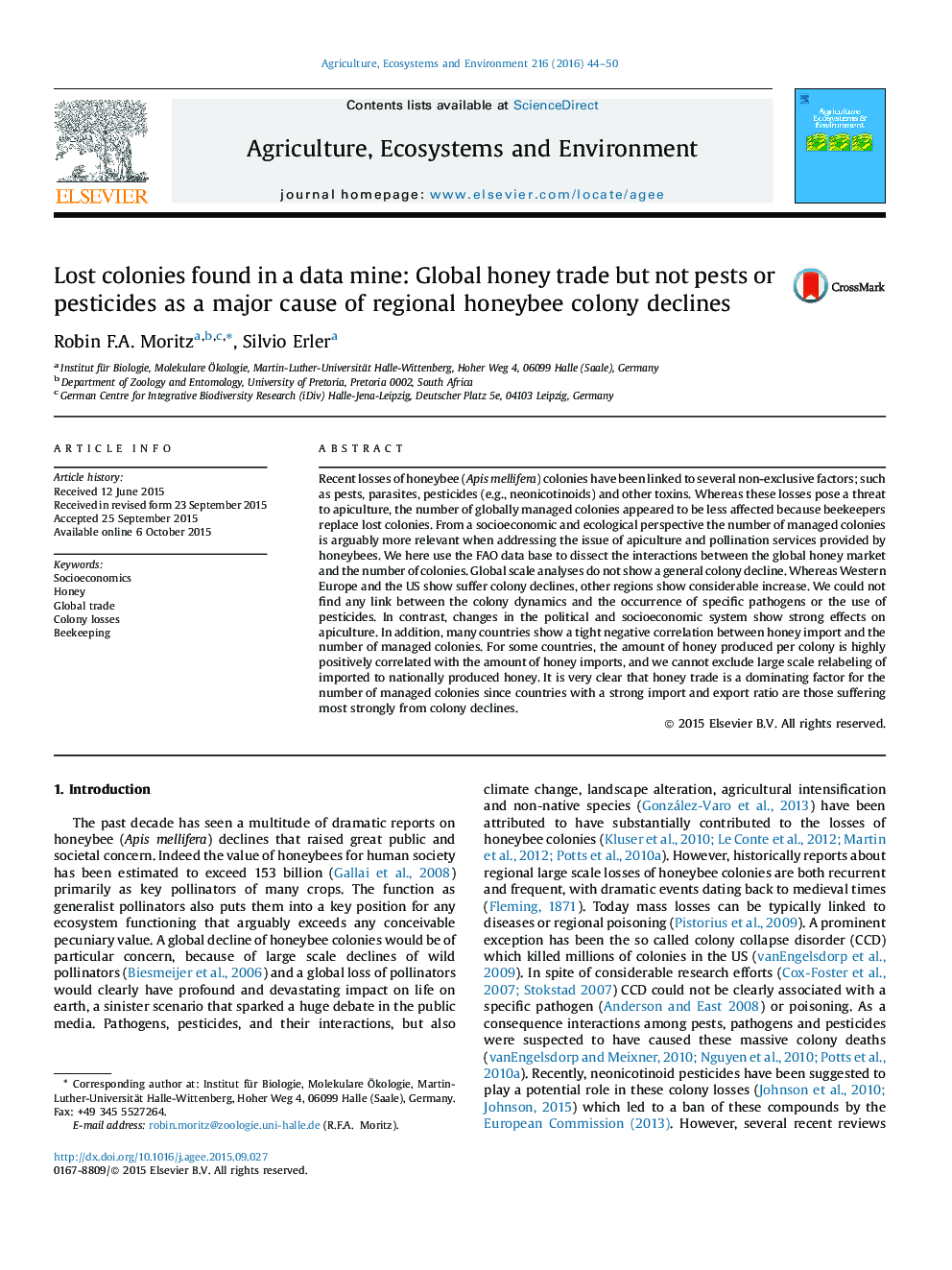| Article ID | Journal | Published Year | Pages | File Type |
|---|---|---|---|---|
| 2413624 | Agriculture, Ecosystems & Environment | 2016 | 7 Pages |
The FAO data base shows that honeybee declines are,•Regional but not global.•Affected by global honey trade.•Driven by political and socioeconomic changes.
Recent losses of honeybee (Apis mellifera) colonies have been linked to several non-exclusive factors; such as pests, parasites, pesticides (e.g., neonicotinoids) and other toxins. Whereas these losses pose a threat to apiculture, the number of globally managed colonies appeared to be less affected because beekeepers replace lost colonies. From a socioeconomic and ecological perspective the number of managed colonies is arguably more relevant when addressing the issue of apiculture and pollination services provided by honeybees. We here use the FAO data base to dissect the interactions between the global honey market and the number of colonies. Global scale analyses do not show a general colony decline. Whereas Western Europe and the US show suffer colony declines, other regions show considerable increase. We could not find any link between the colony dynamics and the occurrence of specific pathogens or the use of pesticides. In contrast, changes in the political and socioeconomic system show strong effects on apiculture. In addition, many countries show a tight negative correlation between honey import and the number of managed colonies. For some countries, the amount of honey produced per colony is highly positively correlated with the amount of honey imports, and we cannot exclude large scale relabeling of imported to nationally produced honey. It is very clear that honey trade is a dominating factor for the number of managed colonies since countries with a strong import and export ratio are those suffering most strongly from colony declines.
